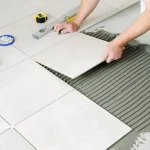Air purifiers are essential for maintaining clean indoor air and are highly recommended for people with allergies, respiratory problems, or those living in polluted areas. However, a common question that arises among people is whether air purifiers dry the air or reduce humidity levels.
To begin with, air purifiers and humidifiers are two different devices with separate functions. Humidifiers add moisture to the air, while air purifiers eliminate pollutants, such as dust, pollen, and smoke, from the air. However, some air purifiers come with a humidification feature, and this is where the confusion lies.
Air purifiers with humidification use a built-in humidifier to add moisture to the air, much like stand alone humidifiers. These air purifiers have a separate tank for water and use a humidifier filter to create mist, which is then blown out by the purifier’s fan. Therefore, air purifiers with humidification do not dry the air; instead, they add moisture to it.
On the other hand, air purifiers without humidification can potentially reduce humidity levels in the room. This is because the air purifier’s fans continually circulate air, and as a result, moisture in the air may evaporate. However, this effect is negligible, and most air purifiers have a negligible impact on the humidity levels.
Moreover, if you live in a humid area, you may not need an air purifier with a humidification feature. In fact, using an air purifier with humidification in a humid area may lead to excess moisture, encouraging mold and mildew growth. Instead, you can opt for a standalone dehumidifier or air purifier without humidification to reduce moisture levels in the air.
Another factor to consider is the filter used in air purifiers. HEPA filters, which are commonly used in air purifiers, can absorb moisture, reducing humidity levels. Therefore, if you use an air purifier with a HEPA filter, it can potentially decrease humidity levels. However, as mentioned earlier, the effect is minimal and should not be a concern for most people.
Reasons Why You Feel the Air Purifiers Dry Out the Air?
There are various reasons why you may feel that your air purifier is drying out the air. Some of these include:
Running the Air Purifier on High Fan Speed
When an air purifier is set to a high fan speed, it can potentially dry out the air as it continually circulates and removes moisture from the room.
Using an Air Purifier in a Small Room
If you use an air purifier with a high CADR (Clean Air Delivery Rate) in a small room, it can quickly remove moisture from the air, leading to dryness. For a small room or space, you can use a machine like Mini Aer.
Lack of Humidification Feature
As mentioned before, certain air purifiers do not have humidification features and may potentially reduce humidity levels in the room.
Low Humidity Levels in the Environment
If you live in an area with naturally low humidity levels, using an air purifier can further decrease moisture in the air, leading to dryness.
Tips for Maintaining Proper Humidity Levels
- Monitor humidity levels regularly using a hygrometer to ensure they stay within the recommended range of 30-50%.
- Use an air purifier with a humidification feature, or consider using a separate humidifier in the room.
- Adjust the fan speed on your air purifier to a lower setting to reduce the amount of moisture removed from the air.
- Consider using plants or other natural methods to increase humidity levels in the room.
- If you live in an area with naturally low humidity, consider installing a whole-house humidifier to maintain proper levels throughout your home.
- Clean and maintain your air purifier regularly to ensure it is not overworking and drying out the air.
- Consider using a water-based air purifier instead of traditional filter-based ones, as they do not remove moisture from the air.
- If you experience persistent dryness and discomfort, consult a professional to determine the best course of action for your specific situation.
- Other ways to improve indoor air quality include regularly changing HVAC filters, keeping windows open for fresh air circulation, and minimizing the use of harsh chemicals in cleaning products.
What to Do With the Uncomfortable Dry Air?
If you find yourself dealing with uncomfortably dry air, there are a few simple steps you can take to alleviate the issue. Here are some additional tips to consider:
Use a humidifier in specific rooms
If your entire home doesn’t require added humidity, consider using a portable humidifier in the room where you spend the most time.
Add plants to your home
Plants are natural humidifiers and can help add moisture to the air. Some plants known for their air-purifying properties include aloe vera, spider plant, and peace lily.
Avoid excessively drying out the air
This may seem obvious, but it’s important not to overuse or run your air purifier constantly. Follow manufacturer recommendations for optimal use.
Monitor humidity levels
Invest in a hygrometer to keep track of humidity levels in your home. Ideally, you want to maintain a relative humidity level between 30-50%.
Consider a different air purifier
If your current air purifier is causing excessive dryness, it may be time to consider switching to one with added humidifying capabilities.
Overall, finding the right balance of moisture in your home can greatly contribute to better indoor air quality and overall health. Remember, regular maintenance and proper use of your air purifier is key to ensuring its effectiveness in promoting clean air.


